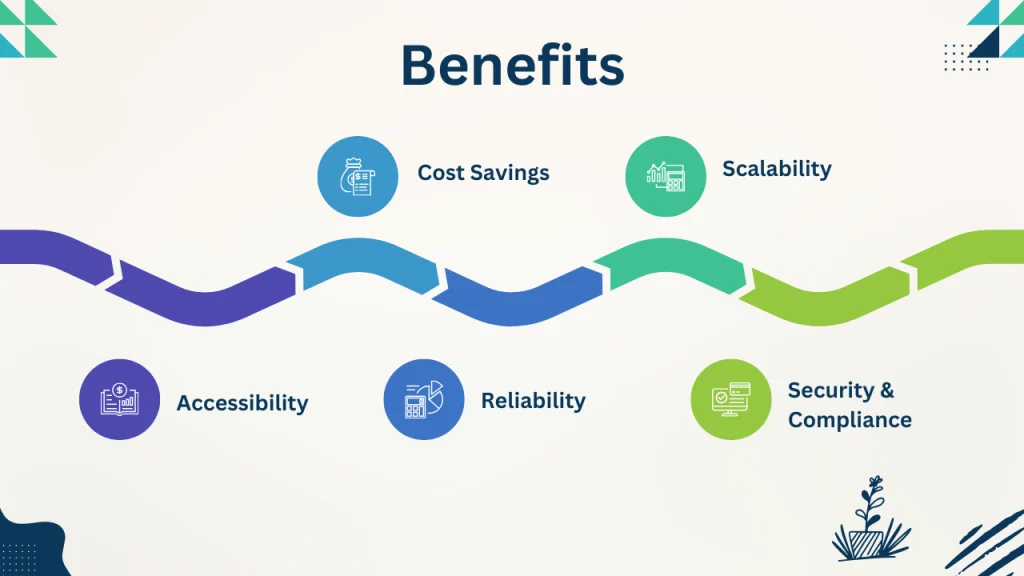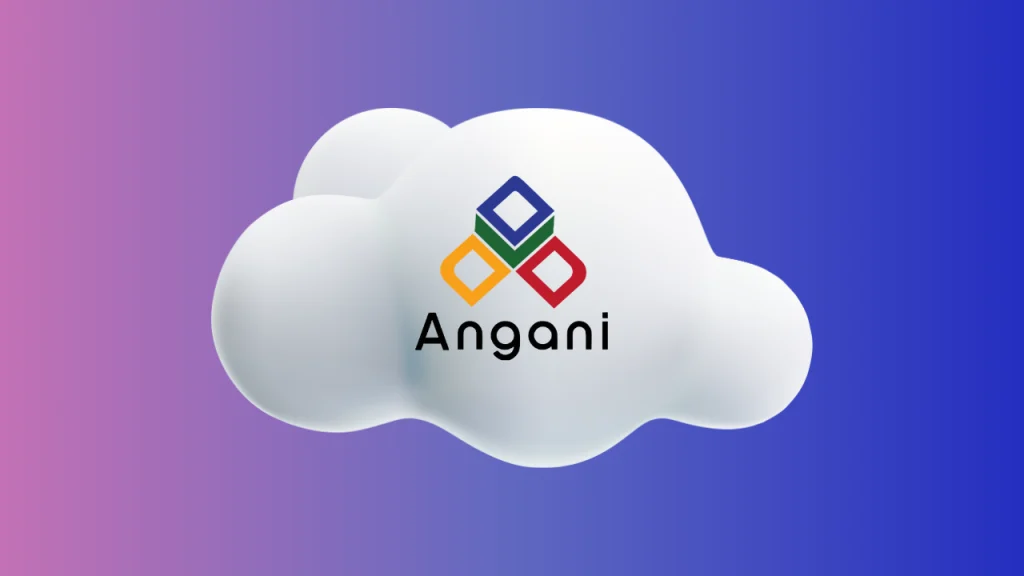
How to Choose the Right Cloud Service Provider: Top 6 Factors You Can’t ignore
Businesses rely on cloud service providers to efficiently run applications, store data and grow their operations. Selecting the right cloud provider can have a big influence on the whole business from cost-effectiveness and flexibility to performance and security.
How do you choose the best cloud service provider?
Below are important factors to take into account when choosing a cloud service provider. No matter how old your business is, being aware of these essential components can help you make many wise choices that will further your business’s objectives.
What is a Cloud Service Provider?

A cloud service provider (CSP) is a provider that offers cloud computing services, such as infrastructure, storage, networking and applications over the internet. Without having to buy expensive hardware, these providers let businesses grow operations, safely store data and access computer resources whenever they need them.
Selecting the best cloud service provider might be difficult with so many options available. To choose a provider that fits their demands, price and security standards, businesses must consider a number of important aspects.
Types of Cloud Providers
Cloud Service Providers offer a variety of services, but typically they fall under three types of cloud service providers:
IaaS Providers
The need to buy, set up or maintain your own IT infrastructure components is replaced with IaaS solutions, which provides you access to the components you would typically find in your data center.
This covers computing, networks, storage, virtualization, data management and operating systems, among other resources. Even while the IaaS approach reduces expenses, speeds up time to market and provides flexibility, users are still in charge of administering and maintaining their own apps and handling problems.
PaaS Providers
PaaS solutions build off IaaS, providing tools and services to create and deploy applications. PaaS incorporates operating systems, middleware and runtime environments into the application stack and also manages any hardware or other assets related to the underlying infrastructure.
SaaS Providers
SaaS solutions are among the most well-known and rapidly expanding services in the cloud market. Cloud service providers are responsible for hardware and maintenance, software development, scalability and delivery, in addition to offering ready-to-use programs.
Among the various SaaS productivity tools in Google Workspace, you probably use Gmail, Calendar, Docs and Drive every day.
Although these are the most widely used categories, not all of the services offered by cloud service providers are included in them. New cloud-based services built on cutting-edge technologies like Kubernetes, edge computing, machine learning and containerization are constantly being developed by several of the leading cloud service providers.
Grouping various cloud service providers according to whether they use public cloud infrastructure or private deployment techniques is another way to categorize them.
What are the Benefits of Using a Cloud Service Provider?

There are various benefits to using a cloud service provider, such as:
- Cost Savings: Lowers maintenance expenses and does away with the requirement for pricey on-premise infrastructure.
- Scalability: Enables companies to adjust their resource levels in response to demand.
- Security & Compliance: Providers provide encryption, strong security measures and adherence to national and international laws.
- Reliability: Cloud service providers guarantee high uptime and offer alternatives for disaster recovery.
- Accessibility: Makes it possible to access data and apps remotely from any location in the world.
How to Choose the Right Cloud Service Provider?
Selecting the best cloud service provider requires assessing a number of features to make sure they complement your business’s goals. Here are the key steps:
- Assess Your Business Needs: Determine your cloud requirements, including computing power, storage, security and compliance needs.
- Research Available Providers: Compare different cloud service providers based on their offerings, reputation and customer reviews.
- Evaluate Performance and Reliability: Look at uptime guarantees, network speeds and data center locations to ensure reliable service.
- Check Security and Compliance Standards: Verify if the provider meets necessary security certifications and data protection regulations.
- Analyze Pricing Models: Ensure transparent pricing structures without hidden costs and compare it with your budget.
- Assess Scalability and Flexibility: Choose a provider that can grow with your business and offers support for multiple platforms.
- Review Support and Customer Service: Ensure that the provider offers 24/7 technical support and has a dedicated account management system.
- Test Data Management and Storage Solutions: Confirm the availability of backup options, disaster recovery plans and data redundancy features.
Businesses can choose a cloud service provider with knowledge if they follow these procedures.
Factors You Can’t Ignore When Choosing a Cloud Service Provider
1. Performance & Reliability
When choosing a cloud provider, performance and dependability are important considerations. A trustworthy provider guarantees peak performance and less downtime.
- Uptime Guarantees: Look for uptime assurances (such as 99.9% availability) in the provider’s Service Level Agreements (SLAs).
- Network Speed & Latency: User experience and application performance are improved by responsive and quick networks.
- Data Center Locations: Redundancy and reduced latency for users in various locations are guaranteed by a provider with multiple data centers.
2. Security & Compliance
When selecting a cloud service provider, security need to be your first concern, particularly if you deal with sensitive business data.
- Data Encryption: To avoid unwanted access, make sure data is encrypted while it’s in transit and at rest.
- Adherence to Industry Standards: Confirm that the provider abides by industry rules such as ISO 27001 and Kenya’s Data Protection Act (DPA).
- Data Sovereignty & Residency Laws: Make sure your data is stored in the appropriate geographic areas by selecting a provider who complies with data sovereignty laws.
3. Scalability & Flexibility
Your cloud provider should be flexible enough to adapt to your business’s evolving needs as well as new developments in technology.
- Resource Scaling: Without requiring long-term commitments, the provider should let you scale resources up or down in response to demand.
- Multi-OS Support: To improve compatibility with your business apps, make sure the cloud provider supports a variety of operating systems, such as Windows and Linux.
4. Cost & Pricing Model
When choosing a cloud provider, cost is an important consideration. Comprehending the price strategy guarantees openness and avoids unforeseen costs.
- Transparent Pricing Structure: Choose a provider with an up-front and transparent pricing structure to avoid any hidden costs.
- Local Currency Payments: To save money on currency conversion fees, select a provider that accepts payments in your local currency e.g. Kenyan Shillings (KES) if you’re doing business there.
- No Hidden Costs: Keep an eye out for other expenses that could raise your bill, such as egress fees, data transfer fees and API call fees.
5. Support & Customer Service
For problems to be solved and operations to run smoothly, dependable customer service is essential.
- Round-the-clock Support Availability: Select a provider that provides technical assistance via a variety of channels (phone, email, chat) at all times.
- Committed Account Managers: Having an account manager guarantees individualized assistance and prompt technical problem solving.
- Technical Documentation & Community Support: Having thorough documentation and a vibrant support network helps speed up problem solving.
6. Data Management & Storage
Disaster recovery and business continuity depend on effective data management and storage solutions.
- Data Redundancy & Backup: To guard against data loss, a reputable cloud service should give automated backup choices.
- Storage Performance: For quicker read/write operations, take into account providers that provide high-performance SSD storage.
- Disaster Recovery & Business Continuity: To reduce downtime in the event of system breakdowns, find out if the provider offers disaster recovery solutions.
Why Angani is the Right Cloud Service Provider?

When selecting a cloud service provider, Angani stands out as a leading choice in Kenya. Here’s why:
- Locally Hosted Solutions: Lowers latency for nearby companies while guaranteeing adherence to Kenya’s Data Protection Act (DPA).
- Clear and Affordable Pricing: Provides affordable prices billed in Kenyan Shillings (KES) on a flat pricing model with no additional fees.
- High Security Standards: Angani’s cloud service employs robust security measures, including next-gen firewalls, network segmentation, rule-based filtering, centralized management, DDoS mitigation, data sovereignty, and private cloud solutions, ensuring your data is protected at every level.
- Scalable Solutions: Offers adaptable cloud solutions that expand together with your business.
- Dependable Customer Support: Provides committed account managers and technical support around-the-clock.
- Robust Disaster Recovery Plans: These use redundant infrastructure and automatic backups to guarantee business continuity.
Summary
Choosing the right cloud service provider is a crucial decision that impacts your business’s performance, security and scalability. By evaluating providers based on performance, security, scalability, price, support and data management, you can make an informed decision.
If you’re looking for a reliable, secure and locally hosted cloud service provider in Kenya, Angani is the best choice.
Be sure to consider the needs of your business and choose a cloud service provider that can accommodate both your growth objectives and your financial constraints. By taking the effort to learn more about the cloud, you can make the most of its potential while maintaining low costs and good security.

